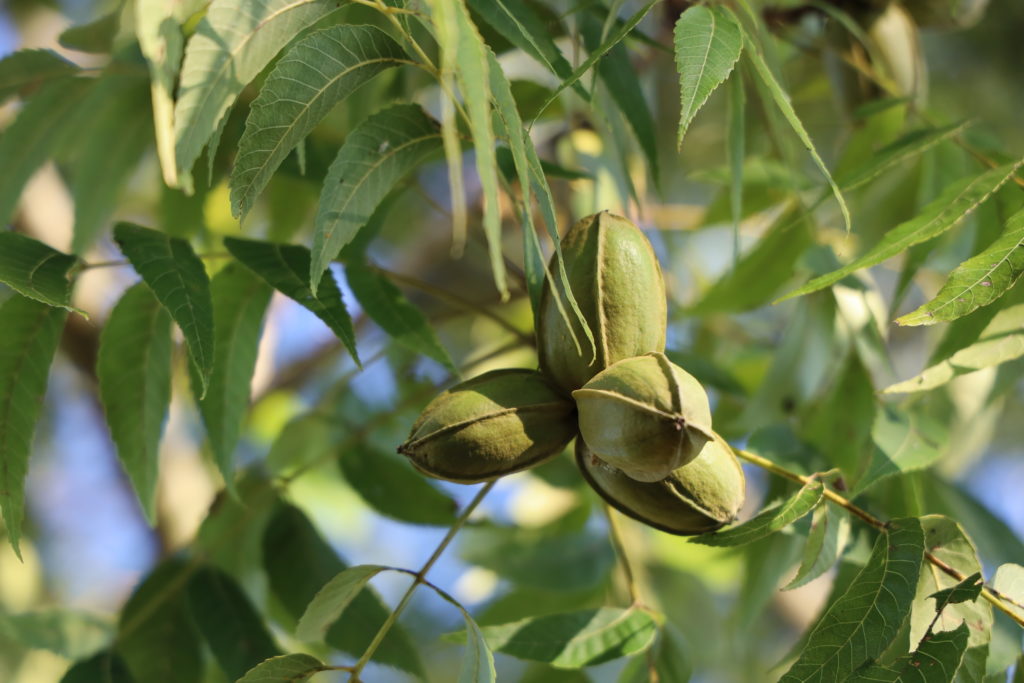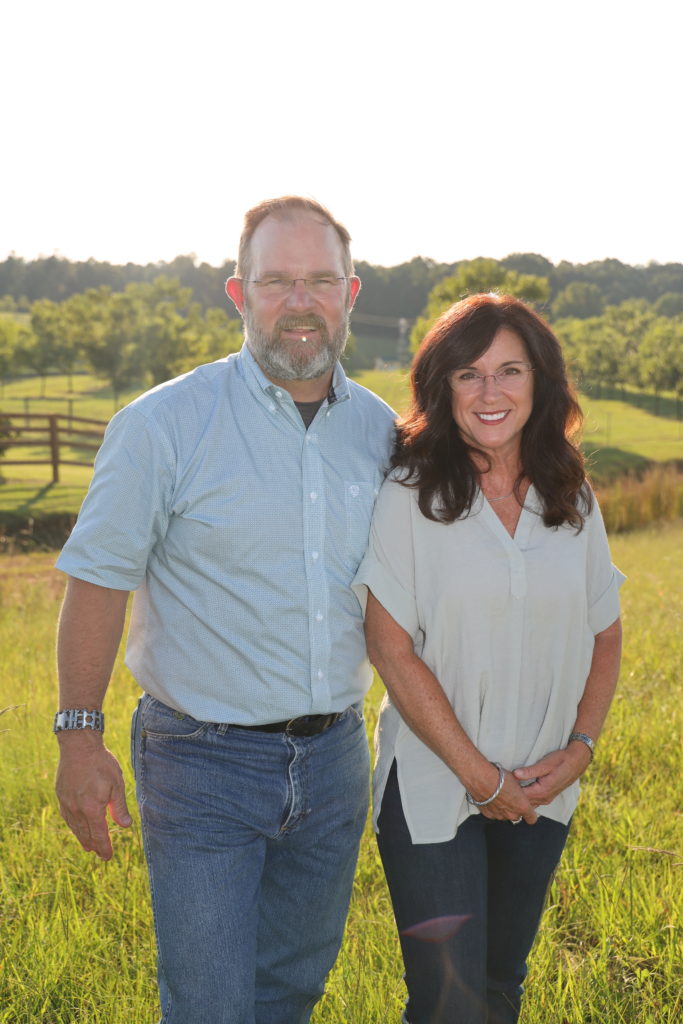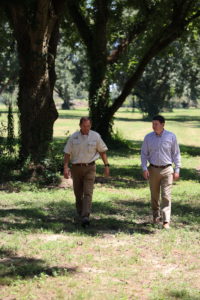Picking Up The Pieces: Alabama Pecans’ Past, Present and Future

By Marlee Moore
Nearly a decade after nestling 60 pecan transplants into rolling Randolph County pastureland, Bran and Karla Futral eagerly advocate for a declining industry poised for resurgence.
“We will always be planting more trees,” said Bran, whose orchards near Woodland now number 600-plus pecan trees. “If we had to do it over again, we would have started earlier.”

Alabama pecan growers, including the Futrals, are slated to harvest around 3 million pounds of the official state nut this year. That’s a sharp contrast to 60 million pounds Bran said were annually harvested in the late ‘60s and early ‘70s before devastating storms toppled thousands of trees near Alabama’s coast. Many farmers didn’t replant thanks to pecans’ long establishment time. It takes inaugural crops five-plus years to bear after planting.
The Futrals and fellow Alabama Pecan Growers Association (APGA) members are determined to make 3 million pounds Alabama’s low point.
“We’ve got to help growers sell their product in retail stores or work better with big buyers of wholesale pecans,” said Bran, APGA’s president. “Our neighbors in Georgia have crushed it. We’ve got to figure it out.”
Mentoring small and beginning pecan growers is an avenue Bran believes will work.
“If someone is interested in growing pecans, we’ll do whatever it takes to help them,” he said.
In Baldwin County, the Bertolla family has nearly a century of experience producing pecans. They and other families along the Gulf Coast planted extensive acres in the early 1900s.
Today, A.A. Bertolla Farms has just 350 trees, a fraction of its original count following hits from Hurricanes Frederic, Ivan and, most recently, Sally.
And the Bertollas aren’t planting back.

“This was thick with trees before Sally,” said Ray Bertolla, walking through a shaded orchard with gaps in its rows of towering trees. “But we’re not planting more trees. This business isn’t the most profitable of our crops. We’ve dealt with hurricanes, and now we’re dealing with urban sprawl. You’re losing years of revenue when you lose a tree.”
Cracking The Code
Bertolla serves with Bran on APGA’s board. Despite differences in geography, topography and background, the farmers said they’re excited to partner with organizations like the Alabama Fruit & Vegetable Growers Association (AFVGA) to crack the code on the future of Alabama pecans. AFVGA is an affiliate of the Alabama Farmers Federation, the state’s largest farm organization serving 340,000 member families.
“We all realize pecans aren’t the easiest crop to grow,” said AFVGA Executive Director Blake Thaxton. “But with a little education and a lot of hard work, any landowner can benefit from planting pecan trees.”
To help farmers, APGA is helping host pecan-specific seminars during AFVGA’s Annual Conference Feb. 9-10 in Gulf Shores.
“If taken care of properly, pecan trees can produce a crop that fetches a premium price for decades,” Thaxton said. “We want to help new and long-term pecan farmers learn, so we’re excited to welcome APGA to our conference.”
Answering The Call
The Futrals, Bertolla and other APGA board members answer producers’ SOS calls — from homeowners whose backyard trees are battling pecan scab to fledgling growers to farmers looking to diversify their operations.
“Every farm needs to be diversified,” said Bertolla, whose family grows row crops and cattle, too. “It may not work for us forever, but I’m glad more folks are getting into the pecan business.”
Bertolla and Bran said the future is especially promising for growers farther inland, who are less susceptible to fall tempests that can fell pecan trees with nut-laden canopies and shallow roots.
As growers invest in the industry, Bran counters calls with his favorite question: “What’s your endgame?”
That dictates decisions like pecan rootstock and graft selection, choosing grass for the orchard floor, pest management, irrigation opportunities and spacing.
Those decisions and learning from trial and error take time, Bran said.
“If you’re not fully into this and prepared to take the bumps and the bruises, you’re in the wrong business,” he said. “It’s a marathon, not a sprint. If I had to do it all over again, I’d still plant the orchard.”
For more information, visit AlabamaPecanGrowers.com or contact a local Alabama Extension agent at aces.edu. Register for the AFVGA Annual Conference at AFVGA.org.
